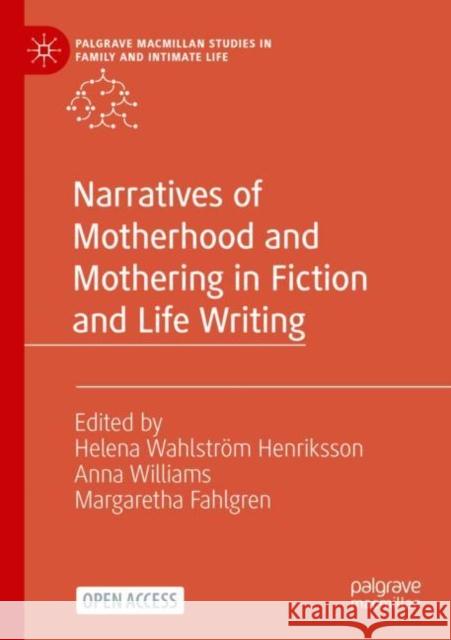Narratives of Motherhood and Mothering in Fiction and Life Writing » książka
Narratives of Motherhood and Mothering in Fiction and Life Writing
ISBN-13: 9783031172137 / Angielski
Narratives of Motherhood and Mothering in Fiction and Life Writing
ISBN-13: 9783031172137 / Angielski
(netto: 152,96 VAT: 5%)
Najniższa cena z 30 dni: 154,18
ok. 22 dni roboczych.
Darmowa dostawa!
This open access volume offers original essays on how motherhood and mothering are represented in contemporary fiction and life writing across several national contexts. Providing a broad range of perspectives in terms of geopolitical places, thematic concerns, and theoretical and interdisciplinary approaches, it demonstrates the significance of literary narratives for understanding and critiquing motherhood and mothering as social phenomena and subjective experiences. The chapters contextualize motherhood and mothering in terms of their particular national and cultural location and analyze narratives about mothers who are firmly placed in one national context, as well as those who are in “in-between” positions due to migrant experiences. The contributions foreground and link together the themes central to the volume: embodied experience and maternal embodiment; notions of what is “normal” or natural (or not) about motherhood; maternal health and illness; mother-daughter relations; maternality and memory; and the (im)possibilities of giving voice to the mother. They raise questions about how motherhood and mothering are marked by absence and/or presence, as well as by profound ambivalences.
This open access volume offers original essays on how motherhood and mothering are represented in contemporary fiction and life writing across several national contexts. Providing a broad range of perspectives in terms of geopolitical places, thematic concerns, and theoretical and interdisciplinary approaches, it demonstrates the significance of literary narratives for understanding and critiquing motherhood and mothering as social phenomena and subjective experiences. The chapters contextualize motherhood and mothering in terms of their particular national and cultural location and analyze narratives about mothers who are firmly placed in one national context, as well as those who are in “in-between” positions due to migrant experiences. The contributions foreground and link together the themes central to the volume: embodied experience and maternal embodiment; notions of what is “normal” or natural (or not) about motherhood; maternal health and illness; mother-daughter relations; maternality and memory; and the (im)possibilities of giving voice to the mother. They raise questions about how motherhood and mothering are marked by absence and/or presence, as well as by profound ambivalences.











